- News
- Reviews
- Bikes
- Accessories
- Accessories - misc
- Computer mounts
- Bags
- Bar ends
- Bike bags & cases
- Bottle cages
- Bottles
- Cameras
- Car racks
- Child seats
- Computers
- Glasses
- GPS units
- Helmets
- Lights - front
- Lights - rear
- Lights - sets
- Locks
- Mirrors
- Mudguards
- Racks
- Pumps & CO2 inflators
- Puncture kits
- Reflectives
- Smart watches
- Stands and racks
- Trailers
- Clothing
- Components
- Bar tape & grips
- Bottom brackets
- Brake & gear cables
- Brake & STI levers
- Brake pads & spares
- Brakes
- Cassettes & freewheels
- Chains
- Chainsets & chainrings
- Derailleurs - front
- Derailleurs - rear
- Forks
- Gear levers & shifters
- Groupsets
- Handlebars & extensions
- Headsets
- Hubs
- Inner tubes
- Pedals
- Quick releases & skewers
- Saddles
- Seatposts
- Stems
- Wheels
- Tyres
- Health, fitness and nutrition
- Tools and workshop
- Miscellaneous
- Tubeless valves
- Buyers Guides
- Features
- Forum
- Recommends
- Podcast
review
£20.00
VERDICT:
Entertaining and informative autobiography from a well-loved and successful British cyclist, businessman, commentator, campaigner, bike designer…
Weight:
625g
Contact:
At road.cc every product is thoroughly tested for as long as it takes to get a proper insight into how well it works. Our reviewers are experienced cyclists that we trust to be objective. While we strive to ensure that opinions expressed are backed up by facts, reviews are by their nature an informed opinion, not a definitive verdict. We don't intentionally try to break anything (except locks) but we do try to look for weak points in any design. The overall score is not just an average of the other scores: it reflects both a product's function and value – with value determined by how a product compares with items of similar spec, quality, and price.
What the road.cc scores meanGood scores are more common than bad, because fortunately good products are more common than bad.
- Exceptional
- Excellent
- Very Good
- Good
- Quite good
- Average
- Not so good
- Poor
- Bad
- Appalling
Chris Boardman has been making headlines for over 30 years, and in that time he has been the subject of numerous articles and interviews. As a result, some of what you read in Triumphs & Turbulence may be familiar – but here you get the full story, told in typical Boardman style with his usual dry humour.
Boardman has featured in several books already, including writing a foreword or being a joint-author, but this autobiography is the first where he is the sole author. Gary Imlach is credited as 'the editor, and my mentor for the painful 2.5 years it took to finish'.
As a professional rider Boardman managed to keep his work and home life separate, even negotiating his right to remain living in the UK into his first professional contract. In this book he reveals a lot about his home life and his six children – as you would expect from any good autobiography.
Boardman is very open about how cycling impacted on his marriage, as he moved from being simply dedicated to 'self-obsessed, uncaring of the people around me and morose. And she'd had enough'. What followed was 'a turbulent few months': this is one of several lows in his life that Boardman covers with great honesty, along with the many highs that we tend to hear more about.
Boardman gives occasional insight into how he tackled the challenge of making enough money to support his growing family: from being 'an unemployed carpenter with wife, two kids and no money', he set up a club to be sponsored by Kodak because 'an athlete could be paid unspecified "expenses" to ride for a sponsored club yet not be classed as a professional'. It was a loophole that he needed to exploit in the days before National Lottery funding.
A few years later the negotiation with GAN for his first professional contract resulted in 'a base figure of £90,000', plus 'a hefty bonus arrangement'.
Some parts of Boardman's career are well known, but we rarely get to hear the full story about what happened before and after the newsworthy moment: the book is full of such insights, and here are a couple of examples.
Take 'that bike': Boardman actually rode one of Mike Burrows' machines as far back as 1985, and felt that the bike offered an advantage. Eventually a development of it reappeared as the Lotus Type 108 and was famously used to win 'that gold medal' at the 1992 Barcelona Olympics. Ever since then Boardman has become 'sick of people saying it was the Lotus bike that had got me my gold in Barcelona'; it is clear from the book that Boardman was looking at every aspect of his performance, and the bike was only one of many areas to be improved.
Lotus bikes are used again later on in his professional career, but this time he needed the approval of the team's existing bike sponsor: first LeMond bikes, and later Eddy Merckx. Fortunately both accepted the arrangement. It gives a good insight into the negotiations that go on behind the scenes – from the perspective of a rider who is well-known for caring a lot about his choice of equipment.
Down but not out
Boardman is also known for a couple of significant crashes: not surprisingly crashes and illness feature throughout the book, and make you realise how easily things could have turned out very differently. Way back in 1990 he was in pain straight after winning a national 25-mile Time Trial title, and it turned out that 'I had a condition called Meckel's Diverticulum, and left unchecked, the complications might have killed me'.
Then, only six weeks before the Barcelona Olympics, he crashed and broke his collar bone – although in hindsight he accepts that it was a blessing and prevented him 'repeating the mistake of the previous year and overtraining'.
His most destructive crash was in the wet prologue of the 1995 Tour de France, when he fell off on a bend; as well as breaking the bones one might expect, the team car following behind barely stopped in time and managed to hit his head and break his nose.
It was the discovery that he had low bone density that actually had the greatest impact on his life, by forcing his retirement from professional cycling. The condition was 'exacerbated by my chosen career as an endurance athlete, constantly breaking down body tissues with high volumes of work'. While the condition could be treated with testosterone, it was a controlled substance and could not be used without a TUE (Therapeutic Use Exemption) – which was not approved, possibly saving Boardman's name from being tarnished in later years.
Out but not down
Unlike many other retired athletes, Boardman went on to find more fame (and possibly fortune) as British Cycling's Director of R&D for the GB Olympic programme – or head of the Secret Squirrel Club, as it became known. It appears that Boardman was absolutely the right person for the job, and it was perfect timing for British Cycling (BC).
Boardman clarifies many topics that are often misunderstood about the arrangement, such as how BC addressed the UCI requirement that all the equipment used should be available for sale, and how BC handled the potential conflict of interest when he started Boardman Bikes.
> Buyer's guide: Your essential cycling library
He carried on working with BC until the end of the London Olympic cycle, and decided that would be a logical event with which to end the book.
This does mean some significant stories from subsequent years are not covered, such as the death of his mother, or the sale of his bike business.
Boardman has experienced a lot of success – and some failure – in so many areas, which gives him a lot of material to cover in the book. Fortunately his writing style is another success, and he weaves all the different aspects of his life into an illuminating and highly readable narrative.
Verdict
Entertaining and informative autobiography from a well-loved and successful British cyclist, businessman, commentator, campaigner, bike designer…
road.cc test report
Make and model: Triumphs and Turbulence by Chris Boardman
Size tested: n/a
Tell us what the product is for, and who it's aimed at. What do the manufacturers say about it? How does that compare to your own feelings about it?
From Ebury Press:
You may know him as the much-loved co-presenter of ITV's Tour de France coverage or enjoyed his BBC Olympic coverage, but beyond the easy charm Chris Boardman is one of our greatest, most inspiring cyclists.
Boardman's lone achievements in the 80s and 90s – Olympic track gold, the world hour record, repeatedly claiming the yellow jersey in the Tour de France – were the spark that started the modern era for British cycling. His endeavours both on and off the bike have made him the founding father of current golden generation – without him there would simply be no Hoy, Wiggins or Cavendish.
It is a story full of intrigue: from Olympic success, to the famous duels with Graeme Obree and the insanity of the Tour de France. Chris became a legend for his combination of physical ability and technical preparation, almost single-handedly taking British cycling from wool shirts and cloth caps into the era of marginal gains. Indeed, after his career on the bike ended, a new chapter began as the backroom genius behind GB cycling. As head of the R&D team known as The Secret Squirrel Club, Chris has been responsible for the technical innovations that made the difference in 2012 and developed Boardman Bikes, which has become the country's bestselling premium bike range.
Tell us some more about the technical aspects of the product?
Title: Triumphs & Turbulence
Author: Chris Boardman
Publisher: Ebury Press
Date: June 2016
Format: Hardback
Pages: 325
ISBN: 9780091951757
Price: £20
Tell us what you particularly liked about the product
We get to hear the inside story of some important events in recent British cycling.
Tell us what you particularly disliked about the product
We don't get to hear about anything that has happened after the London Olympics.
Did you enjoy using the product? Yes
Would you consider buying the product? Yes
Would you recommend the product to a friend? Yes
Use this box to explain your score
An interesting story told in an engaging style.
About the tester
Age: 55
I usually ride: My best bike is:
I've been riding for: Over 20 years I ride: Every day I would class myself as: Expert
I regularly do the following types of riding: commuting, touring, club rides, sportives, general fitness riding
Latest Comments
- andystow 22 min 10 sec ago
Ok, just noticing this on my own bike. The rear wheel I bought from wheelbuilder.com. The front I rebuilt on my existing SON hub with a rim ordered...
- andystow 34 min 27 sec ago
https://www.itv.com/news/westcountry/2025-01-31/teenage-driver-who-serio......
- hawkinspeter 4 hours 51 min ago
Looks to me like they crashed into a "give way" sign
- jamesha100 5 hours 36 min ago
This is so sad but also so sadly familiar. I am not sure whether more punitive sentences - e.g. life driving bans - would make any difference but...
- chrisonabike 5 hours 55 min ago
Probably. But ... applied / enforced by whom? (See Private Eye's "Rotten Boroughs" page for evidence of how well that might work).
- Miller 6 hours 21 min ago
Because the reframing work in post is a right pain in the neck, the reframed quality doesn't match normal action cams, because the cameras are...
- staticV3 6 hours 30 min ago
Someone please explain to me. My Rockbros Q5 has:...
- David9694 7 hours 3 min ago
"This will kill tourism" fury as Devon price hikes confirmed...


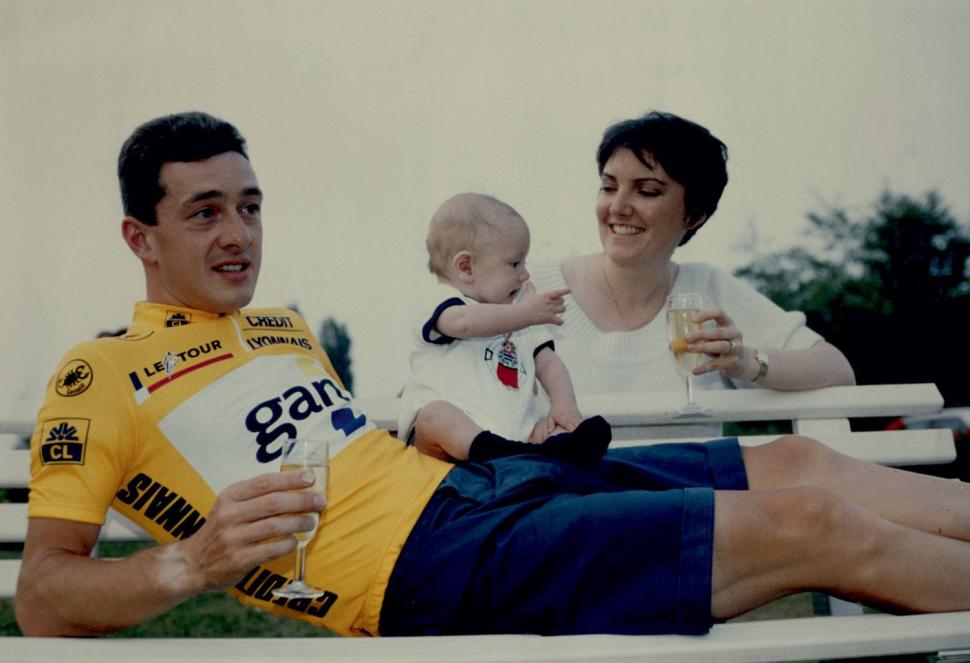
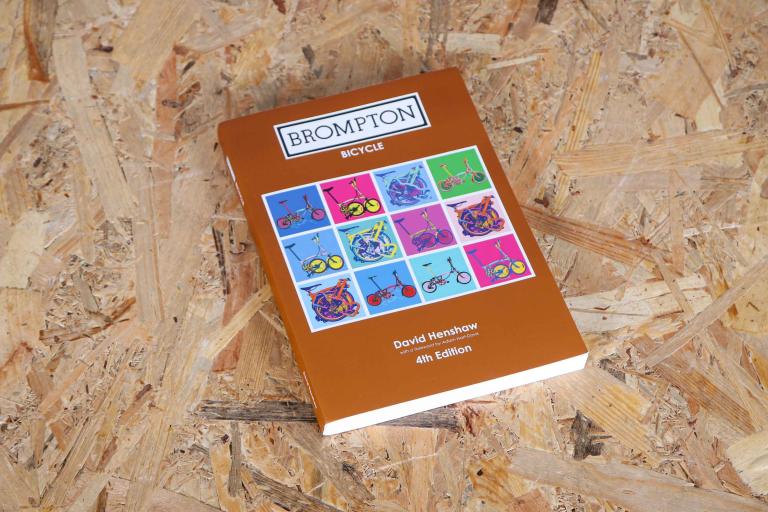
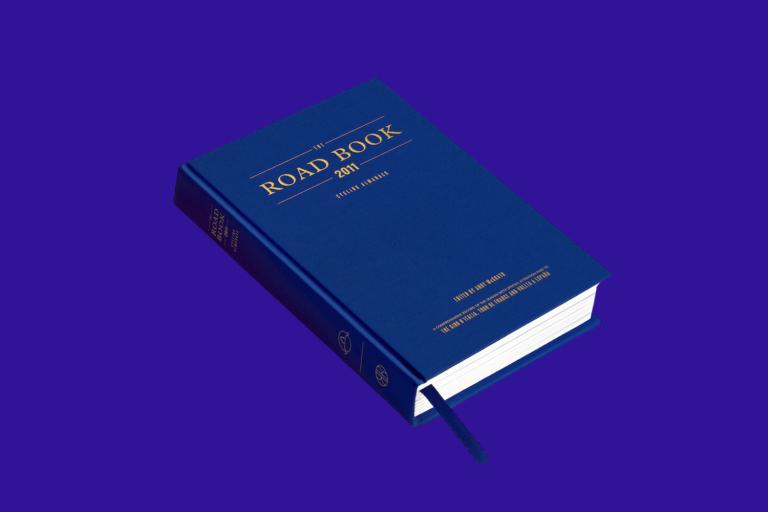
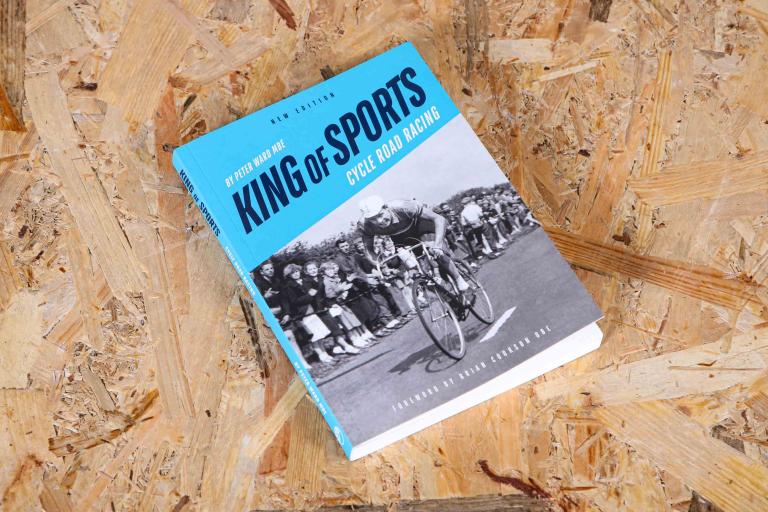
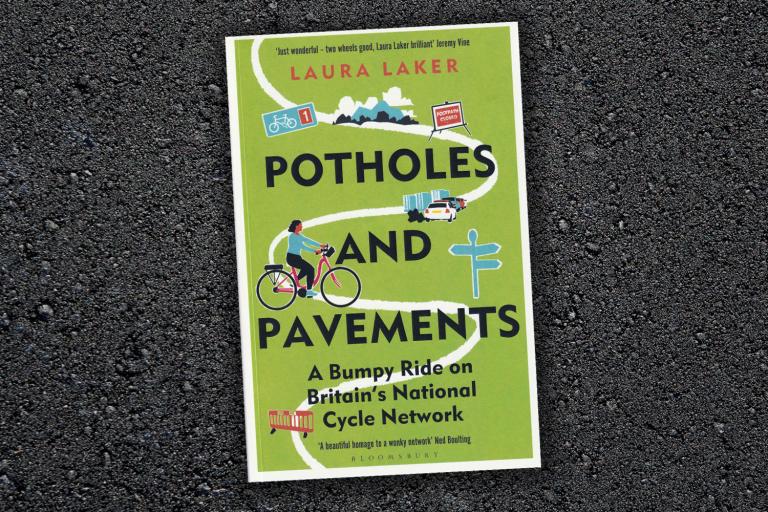
Add new comment
9 comments
Can't remember what I paid for my copy, and didn't weigh it either.
But it was a damned good read - highly recommended.
£8.90 at Amazon with next dy with Prime but bizareely £10 on kindle
https://www.amazon.co.uk/Triumphs-Turbulence-Autobiography-Chris-Boardma...
Ah, good old Meckel's diverticulum, the source of some of my favourite medical trivia. Present in 2% of the population, found within 2 feet of the ileocaecal valve and about 2 inches long, IIRC.
Love the fact that road.cc weighs everything. It's a charming little quirk. It's quite the opposite for me, what I'm not loving is the rounding off of the grams in some of the latest bike reviews.
Also, good to see a cyclist that actually waited it out before writing a biography. There are few more personable and particular characters than Boardman, and even fewer who have lived such eventful lives. Looks to be a good winter read.
Read this on holday this year, loved it. Just the right amount of storytelling and information. Up there with "Domestique" as one of the best cycling reads I treckon.
That's £20 at Waterstones but £5.99 in real money elsewhere.
An ideal stocking filler.
Weight: 625g. Is there a carbon version?
An Ebook version would be lighter.
This book is made from a revolutionary composite material developed from plant fibres and wood. Our patented iNK (tm) is legible in low light and direct sunlight. [Caution, material is not waterproof.] Book can be used as a medical dvice to remove ganglions.